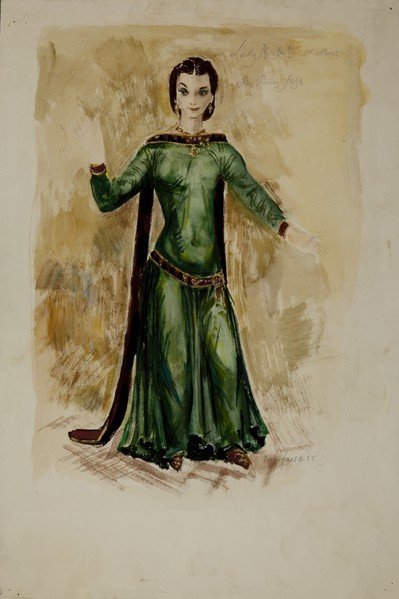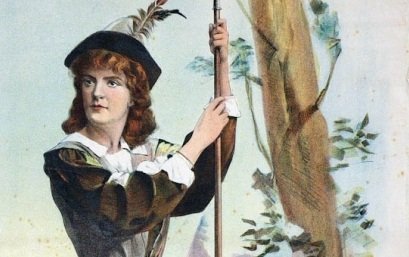Shakespeare's Women in a different light
Find out more about the 5 characters all female troupe Mimbre will be featuring in their new performance Fierce Sisters in the gardens at Shakespeare's New Place.
Lady Macbeth, Macbeth – Ambition

Lady Macbeth is often described as ambitious. She encourages her husband to commit a heinous crime in order for him to become King of Scotland. Although this satisfies her ambition, she is painfully aware that Macbeth is unhappy. When he stops confiding in her, begins to murder children and dismisses her as though she is irrelevant to his plans, she loses command of herself and endlessly relives that fateful night on which the murder occurred. Transformed from a masterful woman determined to shake off her femininity into a deluded creature literally trapped in a nightmare, Lady Macbeth is the epitome of good intent gone rotten, and the very portrait of an individual faced with the tragic reality of her own errors.
Juliet, Romeo & Juliet – Rebellion
Juliet is a feisty girl on the eve of her 14th birthday. Often dismissed as naively romantic, she is the more mature of the two lovers. Romeo enjoys luxuriating in his emotions, whereas Juliet is always more practical and reasonable. When faced with marriage to Paris, she determines to enter into a dangerous world of deceit and risk death rather than relinquish her relationship with Romeo. Her husband buys poison to end his life, while Juliet takes a dagger and plunges it into her breast just like the celebrated noble Roman heroes. Juliet has no problems lying to her family, her own Nurse – who raised her – and even rejecting the Friar that married her to Romeo at the end of the play. She may be a child, but she knows what she wants!
Beatrice, Much Ado About Nothing – Independence
Beatrice is known as Shakespeare’s most vocal female character. Not only does she speak her mind, but she happily rejects suitors (including the Prince) with good humour. After protesting vehemently about her dislike of Benedick, she finds herself drawn to him after being tricked into believing that he's desperately in love with her! Beatrice learns to stop protesting and to be more amenable to the idea of having a husband. She also defends her cousin, Hero, when she is falsely accused of infidelity, demonstrating her integrity and fierce sense of justice.
Summary of Much Ado About Nothing
Rosalind, As You Like It – Gender

Much loved by the Victorians, Rosalind expresses the very joy of being alive. Never wearied by the fact that she is banished, separated from her father and disguised as a boy, Rosalind manages to overcome all of her obstacles and teach others a few lessons along the way. She instructs her lover, Orlando, to cast aside his unrealistic romantic behaviour and expectations; she tutors the young shepherd, Sylvius, in the ways of wooing, and she even manages to talk to the melancholy Jacques about choosing optimism and laughter over wisdom and pessimism. Rosalind earns the right to be herself in the Forest of Arden, to be reconciled with her father, and to marry the man of her dreams.
Katherine, Taming of the Shrew - Defiance
Kate or Katherine, as she prefers to be called, is a loud, very angry woman. Stuck indoors with her younger sister, who is their father’s favourite child, Katherine becomes increasingly agitated and cross. When the gold-digger Petruchio turns up and offers her father all of his estate upon his death in exchange for her hand in marriage, she ends up in a roller-coaster relationship. Turning away from her shrewish ways, Kate learns to speak mildly and to act temperately by the play’s end and even manages to win her husband a handsome fee in a wager between the men about who has the most obedient wife. Whether or not this is all tongue-in-cheek is still open to speculation...
‘If I be waspish, best beware of my sting’
— Katherine, The Taming of the Shrew, Act 2 Scene 1
